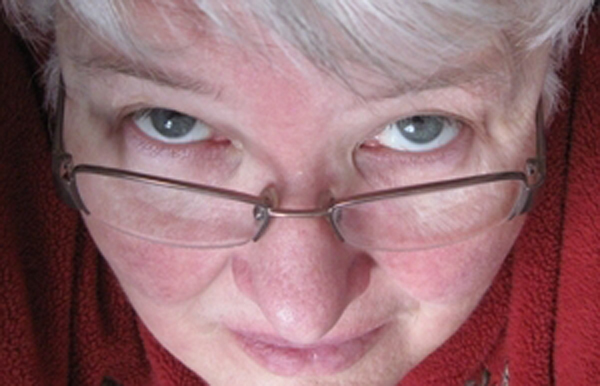“May you live in interesting times.” I am told this is an ancient Chinese curse. It’s been around in English since about 1900. The Chinese origin is debatable, but the idea is still relevant today that living in overtly “interesting times” such as wartime is difficult and undesirable.
Yes we have wars in today’s world, and heartbreaking atrocities. But something else very interesting quietly happened last January 2018, and now a year later, we still have not come to grips with it.
It’s then that China stopped accepting plastics from North America for recycling.
Have our recycling processes been able to take up the slack? Have our families, grocery suppliers, stores and other commerces cut down on single-use plastics? Have we demanded they do so? No, no and no. Instead, disposable plastic packaging is rife. And when we dispose of it, a whole lot of it is piling up somewhere, out of sight, for the moment, and therefore out of mind.
That somewhere seems to be Malaysia, where veritable mountains of plastic trash are piled up in illegal dumps. Greenpeace calls the country “the world’s rubbish bin.” And yes, there we can find plastic bags labeled with our very own grocery chains.
Malaysia is about 16,000 kms. from the Haut-Saint-François. It’s next to Thailand and Singapore and not far from Vietnam, the Phillipines, and Indonesia. It’s surrounded by ocean, where our used plastics are sloshing around, too. So we can hope to encounter our very own disgusting rubbish on our vacations!
It’s interesting, in a subtle way. We’re just trashing the planet, quietly, with our eyes closed. What then? The search for another Goldilocks planet drags on, to which presumably a few earth inhabitants can escape after we finish trashing Earth.
If I sound all fired up about this, it’s thanks to a recent investigative report by CBC’s Marketplace on plastic waste. Here’s a link to it: https://www.cbc.ca/marketplace/episodes/2017-2018/plastic-waste-the-supermarket-challenge.
Their point is that our supermarkets continue to sheathe almost everything in plastic. Although many consumers would like to reduce the use of plastic, they do not have the option. So we bring our airtight plastic packages home, strip off the wrapping before – or after – it causes the food items to rot, and off it goes to who-knows-where.
But alternatives are available, and this is interesting in a really great way. Grocery stores in the UK are finding that many customers care more about packaging than about prices. One Budgens store in North London has totally cut out plastics. It offers more than 2000 products plastic-free, and the owner says business is better than ever before.
They sell in bulk and also use packaging that is plant-based and compostable. They use paper, cardboard, and plant-based cellulose, which looks like plastic and feels like it, but isn’t. They use mesh bags made of a wood-based product instead of plastic.
How do they do it? It’s simple, the store owner explained. Just tell the supplier that your store will stop buying their products unless they stop using plastic wrapping. Alternatives are not lacking. What’s needed is motivation.
Here are some interesting tips for consumers to break free of plastics, courtesy of Sophi Robertson.
Reuse shopping bags. Bring your own.
Buy in bulk. Besides bringing your own shopping bags, bring smaller reusable cloth or paper bags for loose vegetables or fruit. For liquids, grains, nuts and the like, bring a clean empty yogurt container or another jar. (You can have the jar weighed at the cash register before you fill it up.)
Choose recyclable packaging. Look for the recycle mark on the container, but better yet, choose containers you can reuse yourself.
Say “No straws, please”.
Bring your own coffee mug. Tell the server you’re using the mug instead of a disposable cup to cut down on unnecessary waste, so they don’t pour your coffee into a disposable cup first.
Robertson suggests taking one step at a time. Master one change before moving on to the next step.
Interesting times. And I didn’t even mention Trump!
SEED FESTIVAL
The Sawyerville Community Garden stirs from its winter slumber to organize the annual Seed Festival, coming up on Saturday, February 16, from 9 a.m. to 3 p.m. It’s to be at the erstwhile Notre Dame du Rosaire Church, 4 Randboro Road, Sawyerville (entrance is at the back of the building).
Join a force of four seed producers, seven local market gardeners, and several artisans. Throughout the day, 11 speakers will offer the good stuff needed to get our gardens off to a great start. A generous lunch will be served of soup, stew, turkey pie, vegetarian lasagna, dessert and beverages.
Entrance is $20 for ages 15+; $15 for ages 8 to 15; and no charge for ages 8 or less. Family fee available for more than three persons. Info: Chantal Bolduc at chantalbolduc99@bell.net or 819-889-3196.
CHURCH SERVICES
United. Sunday worship services are at Trinity United in Cookshire at 9:30 a.m. and at the Sawyerville United at 11 a.m. Info: 819-889-2838 (listen to message).
Baptist. In Sawyerville, the Sunday worship service is at 9 a.m. in French, and 11 a.m. in English. Sunday school is at 10 a.m. in English and French. Info: 819-239-8818.
Anglican. Sunday worship services are at 9:30 a.m. at the St. Paul’s Church in Bury, and at 11:15 a.m. in Cookshire. On January 27, the service is in the lower level of the Trinity United Church, 190 Principale West. On February 3, it is in the theatre in the Manoir de l’Eau Vive, 210 Principale E. Info: 819-887-6802.
Messy Church. On Monday, January 28, at 5:30 p.m., stories, crafts, singing and supper are on the agenda at the St. Paul’s Anglican Church, 550 Main St., Bury. A joint United and Anglican intergenerational event. All are welcome. Info: Rev. Tami Spires, 819-452-3685.
Do you have news to share? Call 819-300-2374 or email rawrites@yahoo.com by January 28 for publication February 6 and by February 11 for February 20.















